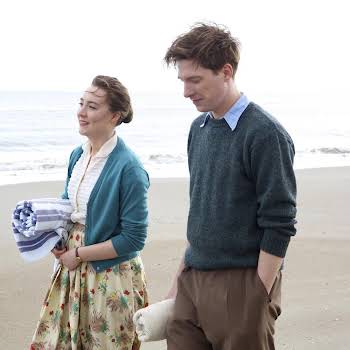
By IMAGE
26th Jun 2016
26th Jun 2016
I joined the Twitter party four years ago.
India Knight of The?Sunday?Times had described it as ?a fantastic cocktail party? and, persuaded by her enthusiasm, I created a Twitter handle and jumped aboard. Knight herself, who was having a conversation with several people about male feminists, was the first person I followed. When I butted in, she tweeted me back.
I was delighted, astonished, at the party and entirely hooked.
It was at this gathering that I bumped into Lidia Matassa. The beautiful Italian name was attached to a seemingly bolshie Dublin woman, a self-described atheist and feminist with a PhD from TCD in Classics/Archaeology and one of seven children to Italian parents. Her father had moved to Ireland with his parents after WW11 and opened a chipper which became a hardware shop on Dublin’s Talbot Street. Lidia’s mode of transport around the city was a push bike she’d transported from Amsterdam and called Calpurnia. It replaced Anastasia, the one before that.
While I was struggling with the 140 character limit, Lidia was using the restriction to her advantage, calling out misogyny, anti-choice sentiment and inept politicians. Unlike me, she didn’t waste her words apologising or tempering her tweets. Her strong social conscience attracted Sinn Fein supporters keen to recruit an articulate and verbally persuasive woman to the party. But when the death of Margaret Thatcher brought jubilant Twitter outbursts from certain quarters Lidia pulled back. Though passionate about a new Ireland, one with a progressive and youthful manifesto, she made it clear that her heart was not with Sinn Fein. She instead embraced The Social Democrats and everything they stood for and determined to help that party form their policies.
When her hackles weren’t up, Lidia would often show a softer side. Her Twitter avatar was a close-up of her pterodactyl’s eyeball. Joshua had been her companion for twenty-six years, and she affectionately referred to him as Beaky, updating her followers on his moods and behaviours. As months of following her turned into a year, and then another, Lidia revealed other traits and anecdotes. Her love for Shalimar, ?the only scent worth wearing?, her opinion that all food is improved with a liberal sprinkling of chilli and ruined by any hint of garlic. She admitted to not just watching ?Keeping up with Kardashians?, but to liking the women in the clan. She thought they were strong and ‘sometimes right?. You couldn’t always guess with Lidia.
Two years into my Twitter life I moved cities and shortly afterwards gave birth to my second child. In the long weeks following the birth of baby James, Lidia was sometimes the only friend I ‘spoke? to. Her anecdotes could transport me from a room full of laundry and formula to an archaeological dig in Israel. She spoke about an unpleasant ?arse-bucket? leading a dig, how she was unable to have it out with him during the day and so, instead, returned to the site later to curse individual rocks before throwing them off the cliff. Lidia had specialised in Jewish temples during the Herodian period in the North East, and I saw her as a sort of female Indiana Jones with a feminist agenda.
She was a truly wonderful friend to me. We shared secrets through this virtual, often maligned platform. We both loved Star Trek and had matching crushes on Zachary Quinto playing Commander Spock. We both had non-Irish parents, or in my case, a parent. We had grown up in Dublin when that kind of parentage was extremely unusual. Lidia taught me a lot about embracing my background and being proud of it. She herself was proud of and informed about her Italian heritage.
When a post went up on Lidia’s Twitter account to tell her followers she had died suddenly in St. James? Hospital on January 11th?last I was struck with sadness and grief.?I also felt guilty. Who was I to indulge a grief that surely belonged to her real-life friends? ?A friendship built on Twitter might be considered shallow and transient. This is not always the case; I can attest to that. I attended Lidia’s humanist service along with some of her other Twitter friends, joining her real-life friends to say goodbye. When her brother and best friends spoke about her, I recognised my friend in their words.
Lidia let herself be known on Twitter, unselfconsciously. To be as honest as she was, took courage as well as vulnerability. She used the platform to meet like minded people and make connections, not to stroke her own ego, promote a product or try to build a huge number of followers.
Having joined Twitter to follow India Knight I gained so much more by following Dr Lidia Mattassa.
By Emer Roche?






















